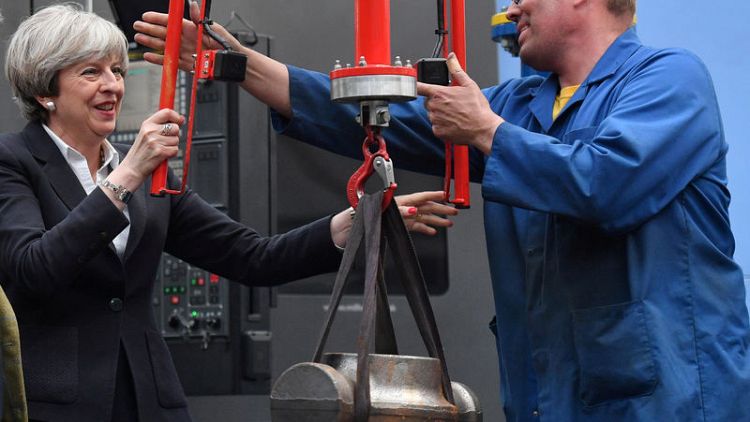By David Milliken
LONDON (Reuters) - British productivity growth slowed to a two-year low during the three months to last September, official figures showed on Wednesday, reinforcing concerns about the underlying health of the economy ahead of Brexit.
Weak productivity growth has bedevilled rich economies around the world since the global financial crisis, but the problem has been particularly acute in Britain.
Most economists see it as the main reason wages have failed to rise materially despite the lowest unemployment rate in a generation.
Britain's departure from the European Union is adding headwinds, with business investment falling as firms hold off while it remains unclear if they will retain tariff-free access to EU markets after March 29.
Britain's overall economy has slowed since the 2016 Brexit referendum and appears to have lost more momentum in late 2018 as Prime Minister Theresa May struggled to get support in parliament for her plan for a smooth exit from the bloc.
The Office for National Statistics said annual growth in output per hour slowed to 0.2 percent in the third quarter of 2018, its weakest since the same period in 2016, after touching an 18-month high of 1.6 percent in the second quarter.
Compared with the second quarter alone, output per hour fell by 0.4 percent.
"The latest relapse in productivity will reinforce concerns over the UK's overall poor productivity record since the deep 2008/9 recession," economist Howard Archer of consultants EY ITEM Club said.
Brexit was probably already hurting productivity by discouraging firms from purchasing labour-saving technology that would save money in the long run in favour of hiring staff who could be sacked easily if the economy sours, Archer said.
The Bank of England expects productivity to grow by about 1 percent a year over the medium term, compared with 2 percent before the financial crisis.
Unit labour costs -- a driver of medium-term inflation pressures that measure how much it costs employers to produce a given level of output -- rose by an annual 2.8 percent, the fastest in a year and a half.
The BoE pencilled in annual unit labour cost growth of 1.75 percent for 2018 in its last forecasts in November.
(Reporting by David Milliken, editing by William Schomberg and Robin Pomeroy)



